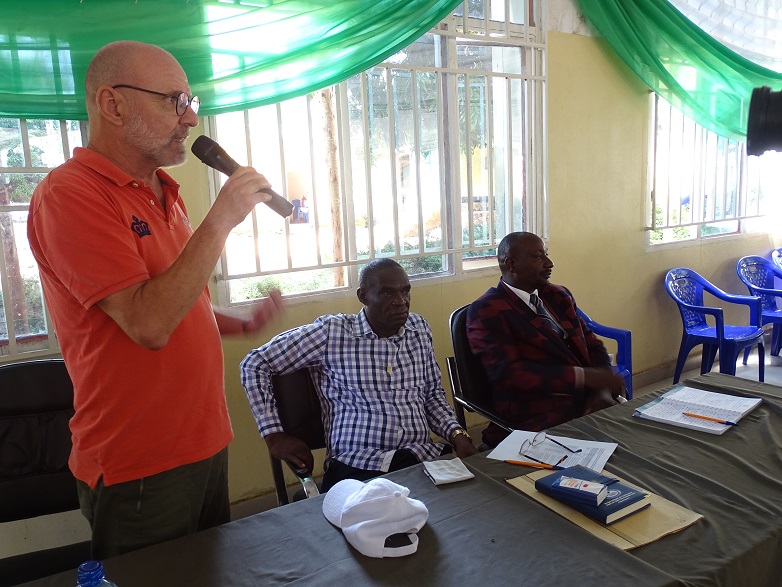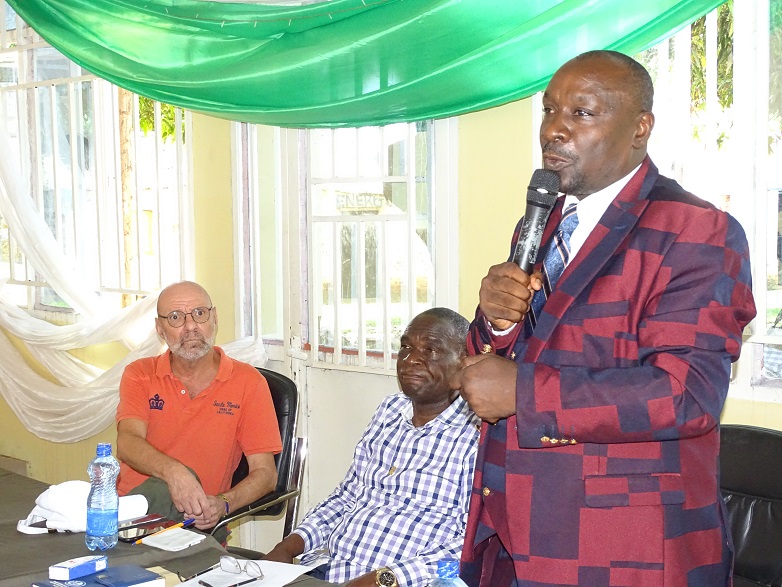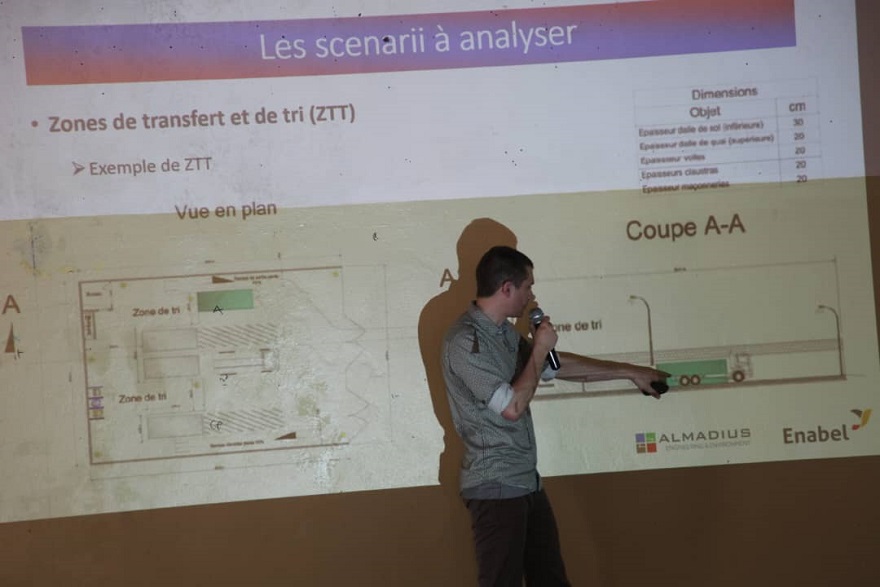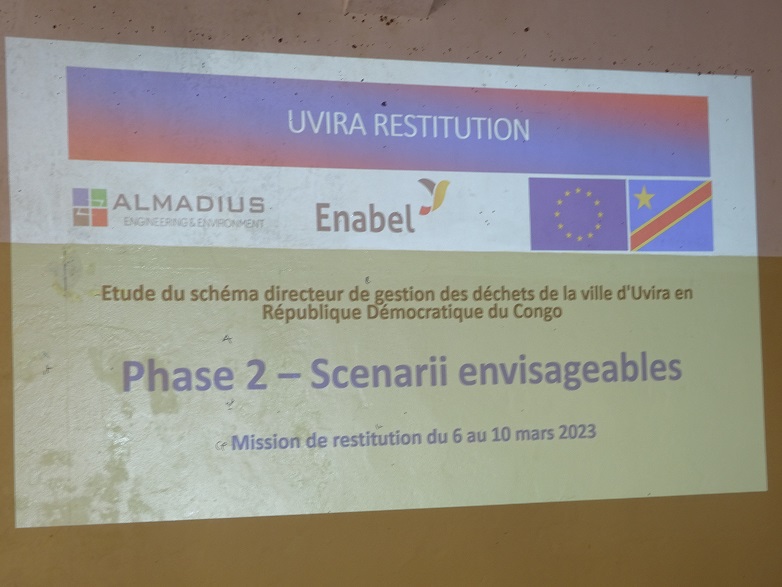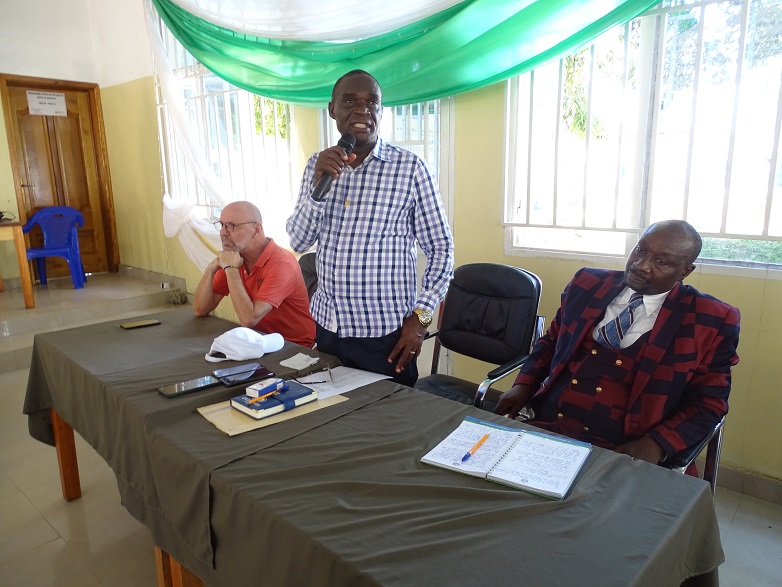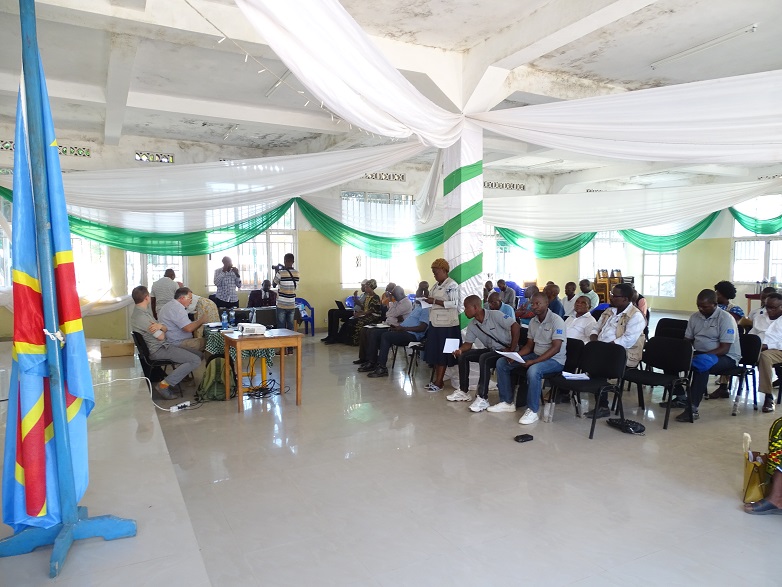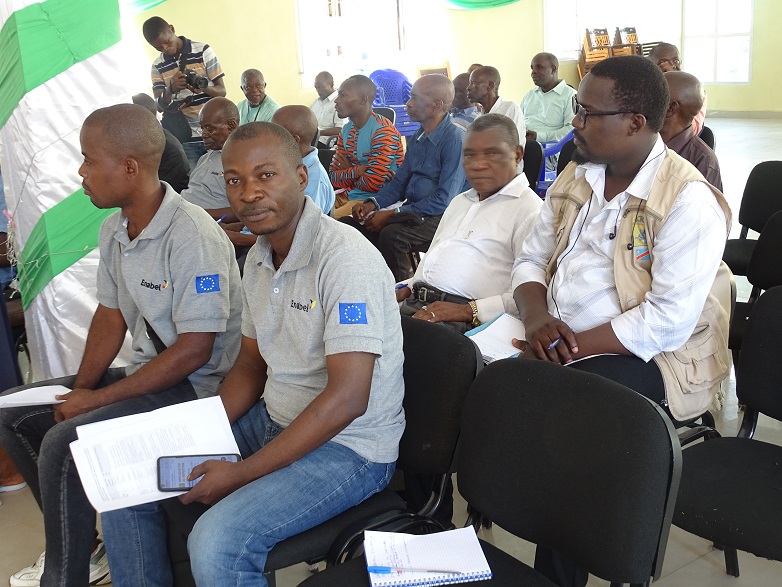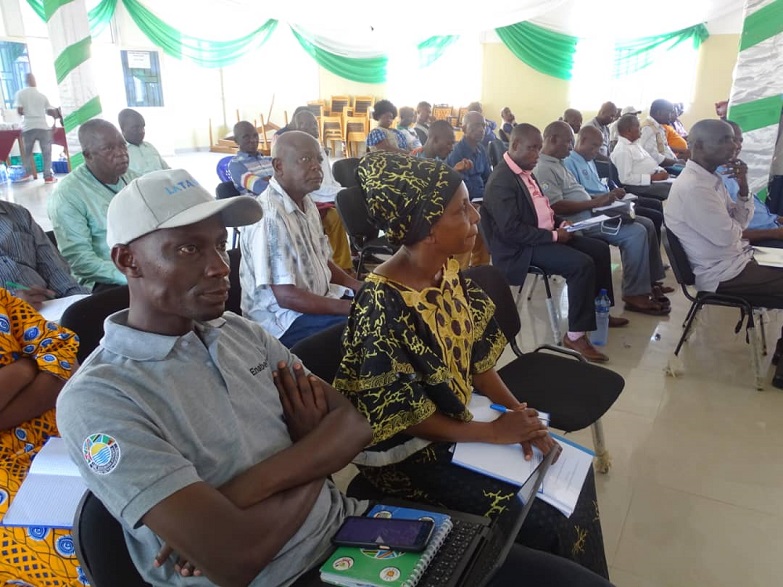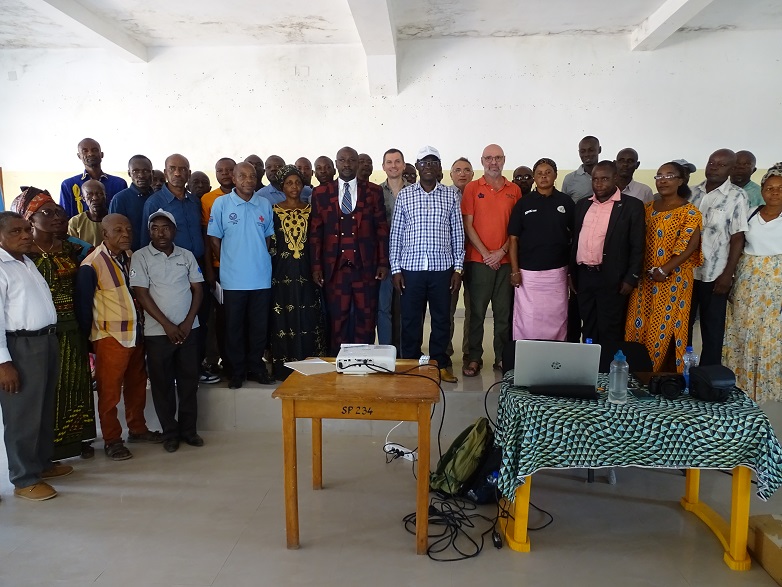The city of Uvira (South Kivu) is facing an intense and anarchic urbanization due to galloping demography and an emerging and underfunded public administration. Indeed, Uvira was designated as a city in 2019. The Latawama project is supporting the development of a solid waste management master plan for the city of Uvira in order to put in place in the medium and long term (2030-2050) efficient and sustainable management of solid waste by developing the circular economy. The challenge is exceptional, as the prerequisites and investments in terms of organization, equipment, human resources, education, and funding are numerous. On 8 March 2023, the technical team appointed by Enabel, the Belgian engineering consultancy ALMADIUS, presented a diagnosis of the current situation and the scenarios to equip the city with a waste management system and the development of the circular economy (recovery of sorted waste).
A large audience, including the Mayor of the city, Kiza Muhato, municipal and provincial services, representatives of NGOs, civil society, researchers from the Hydrobiology Research Centre, LTA, etc., attended the presentation of the key elements of the waste management master plan, took part in the debate and made various recommendations.
The essence of this master plan will consist, as a first step, of collecting solid waste to a technical landfill to be created outside the city to initiate sorting and recovering organic waste, plastics, metals, paper, etc. Various pilot recovery projects are envisaged: composting of organic waste, recovery of food waste from markets for breeding (chickens, etc.), and management of plastic fractions. Administrative, technical, and organizational support for the Municipality and civil society, environmental education and setting up a financing system that considers the population’s ability to pay will be fundamental.
“The solid waste master plan is a strategic and technical document that will enable the town hall to solicit donors to finance the investments needed to guarantee public health, improve living conditions and protect Lake Tanganyika,” said the head of the Latawama project, Mr. Didier Cadelli.
Kiza Muhato, Mayor of the city, confirms it: “We will take ownership of this work because hygiene and sanitation of the city are our responsibility. This master plan will be a planning tool that shows us how we should go about collecting and managing the waste that is polluting Lake Tanganyika.
The Latawama project, funded by the European Union, is being jointly implemented by the Belgian Development Agency Enabel and the Lake Tanganyika Authority.



